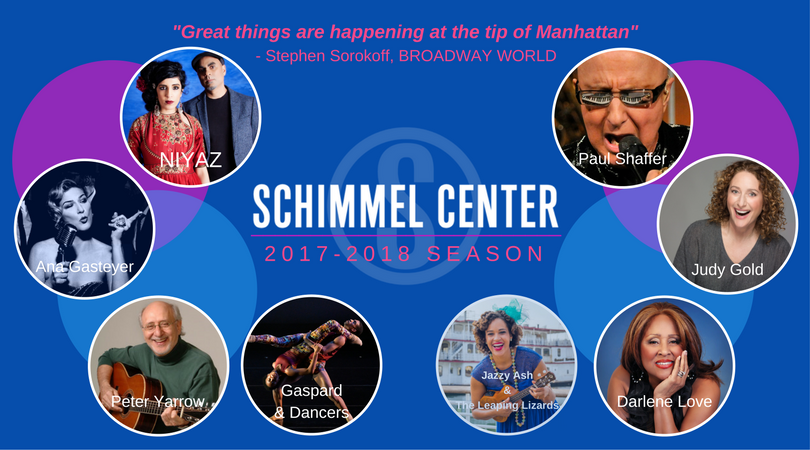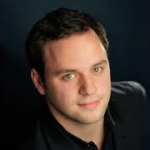“Lend Me a Tenor!” An Interview with Paul Appleby
This Sunday, January 26th, our VOCE AT PACE series will continue. This time, we are honored to welcome Paul Appleby. Mr. Appleby is quickly emerging as one of opera’s most inspiring tenors. Just this fall, he debuted the MET’s production of Two Boys to critical acclaim. He was very kind to answer some of my questions and give our readers a better idea of what to expect form this Sunday’s recital.
MT: Can you describe your musical background growing up to me? How did this background lead you to your passion for opera?
PA: I began taking piano lessons at the age of 6. I sang in choirs at school and church as a kid, and acted in plays as a teenager. I started taking voice lessons to help prepare for roles in musicals in high school. Once I started learning early Italian arias and Schubert songs I was hooked on classical singing.
MT: The Voce at Pace series is exciting because it’s one of the rare opportunities for New York audiences to experience rising opera stars, such as yourself, in an intimate recital setting. Are there any artistic advantages to the recital format that you don’t get performing in an opera?
PA: Presenting a song recital offers me an opportunity not just to perform art songs (which allow for a wider array of vocal colors and expressive choices than opera because one doesn’t have to worry about issues such as filling a large opera house) but also to craft a program of songs from a vast array of repertoire. There are relativity few operatic roles that suit one’s fach at any given moment in a singer’s career. Programming a recital, however, affords me the freedom to select and combine songs from any number of centuries, countries, poets, and composers that not only suit me vocally but which also express something unique and specific about me or an idea I wish to explore with an audience.
MT: Can you tell me about your favorite piece that you picked for this performance?
PA: The great thing about recitals, including this one, is that I only program songs that I love. So it is hard to pick a favorite, but I will say that at the moment, I have a deep infatuation for Schubert’s “Liane.” There is something special and touching about the description of a young woman in love that is so simple and respectful–reading the poem gives me goosebumps, but Schubert’s setting of it is, like the poem, straight-forwardly divine. On the second half of the program, the song that I am most digging today is “To what you said,” Bernstein’s setting of Walt Whitman. I am moved by the suffering of the marginalized narrator, and amazed how Bernstein, who clearly felt this poem deeply, created this haunting and sad conversation between the singer and the cello.
MT: How does the repertoire that you picked for this performance reflect on who you are as an artist right now?
PA: In my opera, concert, and song repertoire, I strive to be a serious interpreter of both great works from the past as well as new works that may not yet be so well-known or revered. Beethoven, Schubert, Schumann, and even Bernstein and Britten are, to my mind, a part of this canon of composers. I love and admire this music and the many interpretations of it by singers who have come before me, and I am honored to participate in perpetuating the legacy and lifespan of these great works of art. Likewise, it is also very important to me, even in some small way, to support the work of living composers and do what I can to give voice to songs I love and hope that others will love too.
MT: You recently performed at the MET in a brand new opera titled, “Two Boys”. Can you tell us a little bit about the experience of starring in a completely original piece?
PA: It was a great honor and a responsibility that I took very seriously. Bringing a new work such as “Two Boys” to life is challenging because you are creating, in part, the style of the piece and putting an important stamp on the role. But this same challenge is also incredibly liberating. The audience seeing and hearing the work for the first time at the Met had no preconceived ideas of how the role should be sung or acted, nor did they compare me to any great singers of the past and say, for instance, “well, he’s no Fritz Wunderlich” (on a side note, I am singing my first Tamino with Washington National Opera later this season and that’s all I can think about!).
MT: In your career so far, is there a favorite role that you have played? Why is that your favorite?
PA: Tom Rakewell in Stravinsky’s “The Rake’s Progress” has been my favorite role to date. I find the score and libretto to be a perfect combination of beauty, vitality, wit, sadness, rich complexity, and emotional directness. The journey of young Tom is one that I think many of us can relate to: we love our family, but fear, insecurity, greed, and the right (or wrong) opportunities can make us forget that love and set our priorities askew. I think because we can relate to Tom’s misguided journey, his exuberance at the beginning of the opera is so appealing, and his heartbreak and tragedy at the end is so touching and yet painful for all of us.
MT: At just thirty years old, you have already accomplished so much. What are your juiciest dream roles and where would you like to see your career in the next five and ten years?
PA: This is dangerous territory because I can’t really foresee how exactly my voice will grow over the next several years, so I can’t promise that I will sing any particular roles in the future. But I can say that there are some that I fantasize about singing, and they are numerous! Two roles in particular that I would love to play are Hoffman and Peter Grimes. The music and psychological depth of these two characters are irresistible.
MT: If you could have any other career, besides tenor extraordinaire, what would it be and why?
PA: I honestly have no idea. I still am pinching myself that I get to sing for a living. If I had a different career, I would still love singing and studying vocal music as a hobby, so the fact that I get paid for it is awesome.
VOCE AT PACE: Paul Appleby
January 26th at 3:00pm
All Tickets $35
VOCE at Pace: Rising Opera Stars in Recital is supported by the Richard Tucker Music Foundation in honor of Dr. Agnes Varis.


